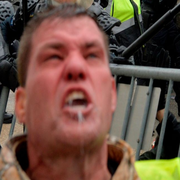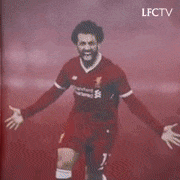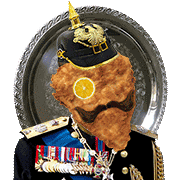|
Hey thread long time no see. I'm looking for recommendations on reading about military doctrines; one that does a compare and contrast between different national militaries would be excellent! My understanding is that during and after WW2, there's a lot of consensus on maneuver warfare emerging - I mostly wanted to know how much, given that context, things differed.
|
|
|
|

|
| # ? Jun 9, 2024 21:00 |
|
"Route Army" seems no weirder than "Motor-Rifle Division" or referring to units that don't fight primarily by throwing grenades at people as "Grenadiers".
|
|
|
|
madeintaipei posted:10th Mountain Division it remains, and it's name means something. yeah it means flagging all your friends with live ammo in a shoot house, lol
|
|
|
|
FMguru posted:"Route Army" seems no weirder than "Motor-Rifle Division" or referring to units that don't fight primarily by throwing grenades at people as "Grenadiers". That's right, I'm a cavalry officer *gets on helicopter*
|
|
|
|
Xakura posted:yeah it means flagging all your friends with live ammo in a shoot house, lol See! Adaptability. Even in the bad things. loving up in new, exciting, never before seen (and/or accepted) ways!
|
|
|
|
FMguru posted:"Route Army" seems no weirder than "Motor-Rifle Division" or referring to units that don't fight primarily by throwing grenades at people as "Grenadiers". why is motor-rifle division weird, it's infantry armed with rifles that uses motorized transport. someone (xiahou dun) who knows poo poo about languages can chime in but i think Route Army is an artifact of Chinese not having a great singular word for the corps-level command zoux posted:That's right, I'm a cavalry officer *gets on helicopter* cav on helos similarly makes sense. they are fast, they are good for recon, and they die if you look at them wrong. aircav is true cav.
|
|
|
|
spectralent posted:Hey thread long time no see. I'm looking for recommendations on reading about military doctrines; one that does a compare and contrast between different national militaries would be excellent! My understanding is that during and after WW2, there's a lot of consensus on maneuver warfare emerging - I mostly wanted to know how much, given that context, things differed. most joints field manuals got published so if you wanna learn about how various national militaries thought about how to fight a war you can go straight to the primary sources
|
|
|
KYOON GRIFFEY JR posted:cav on helos similarly makes sense. they are fast, they are good for recon, and they die if you look at them wrong. aircav is true cav. This checks out.
|
|
|
|
|
in my limited experience, helicopters are perhaps the one thing scarier than horses. or in other words cavalry are lunatics.
|
|
|
|
Poor 'ol Frecklecopter, thought of crosswinds and died
|
|
|
|
KYOON GRIFFEY JR posted:why is motor-rifle division weird, it's infantry armed with rifles that uses motorized transport. Lol. Sure. 路 also means “type” but it can go with verbs too so also “method, fashion”. Also it’s a classifier (rows, lines) which doesn’t hurt. It’s an incredibly natural thing to call a division of something ; you’re basically calling it “number thing”. I think the problem is someone just did a bad job translating and it stuck.
|
|
|
|
Personally I think 路軍 implies a certain amount of strategic mobility, as opposed to garrison forces or militia that just sit around and defend towns. Like, you can order them to march from point A to point B without them totally falling apart. Comedy option: the officers at the table were talking about 陆军 and the poorly-educated clerk taking minutes wrote it down as 路軍 (they are pronounced the same).
|
|
|
|
HonorableTB posted:Good sources that aren't The Guns of August (I've lifted the summaries elsewhere because I don't have time to summarize them all myself but I can vouch for these sources being great because I've used them before as references myself when writing historiographies of mobilization) Quoting this here because I've fallen out of touch of the recommended list on WW1 from this milhist thread. I know from some half remembered posts way back when that one history writer was quite popular but completely on the nose in this thread or one of its ancestors because they were a terrible hack and I just want to double-check if any of the ones quoted above were the bogey I'm half remembering. Or was it Carlin that was the excrement pile?
|
|
|
|
spectralent posted:Hey thread long time no see. I'm looking for recommendations on reading about military doctrines; one that does a compare and contrast between different national militaries would be excellent! My understanding is that during and after WW2, there's a lot of consensus on maneuver warfare emerging - I mostly wanted to know how much, given that context, things differed. Not written content, but Nick Moran/The Chieftain has a good series of videos on the development of various nations' armored doctrines in the buildup and first years of the Second World War. They're pretty good, and sources are provided in the video descriptions for more in-depth reading. E: On the Naval side, I haven't read it but I know there's a book called "Learning War" about the development of the US Navy's doctrine before and during World War II. Drach has a pair of interviews with the author here: https://www.youtube.com/watch?v=gfbPjXAL1C0 https://www.youtube.com/watch?v=zmPpqUwtKoE Acebuckeye13 fucked around with this message at 08:44 on Apr 21, 2023 |
|
|
|
Carth Dookie posted:Quoting this here because I've fallen out of touch of the recommended list on WW1 from this milhist thread. I don't think that Keegan was a hack at all, but because it came up in the acoup blog quite recently I'll link the discussion on his The Face of Battle: https://acoup.blog/2023/03/31/michael-taylor-on-john-keegans-the-face-of-battle-a-retrospective/. The tldr is that Keegan was relying on scholars with an agenda to push (including thread favorite and generally untrustworthy fellow S.L.A. Marshall) and this work in particular was important to the field if not exactly cutting edge scholarship these days (such is history though). That said, just glancing at his list of works on Wikipedia certainly raises a couple eyebrows, but I haven't read it so don't take my word for it. But yeah Dan "the holocaust was good actually because it might have prevented other holocausts" Carlin is a hack who needs to call it a day.
|
|
|
|
I know it's axiomatic that helicopters are dangerous as gently caress: is that getting better?
|
|
|
PittTheElder posted:But yeah Dan "the holocaust was good actually because it might have prevented other holocausts" Carlin is a hack who needs to call it a day. Unless I guess he's arguing SOMEONE would have used the tools laying around to do something LIKE the Holocaust, potentially without being defeated in the subsequent war
|
|
|
|
|
PittTheElder posted:
Wait what
|
|
|
|
I'm not sure if I agree with the "people didn't think of the Nazis as the Holocaust guys until 1955" thing. The reaction to US soldiers liberating concentration camps was immensely strong, leading to outbreaks of violence against German civilians and POWs. The Nuremberg trials and Auschwitz trials were huge events that drew immense attention from the international public opinion. Sure, maybe it took people some time to internalise just how horrible the Holocaust and general Nazi exterminationism were, but I'm pretty sure they were widely understood as a big deal and a terrifying crime.
|
|
|
|
PittTheElder posted:I don't think that Keegan was a hack at all, but because it came up in the acoup blog quite recently I'll link the discussion on his The Face of Battle: https://acoup.blog/2023/03/31/michael-taylor-on-john-keegans-the-face-of-battle-a-retrospective/. The tldr is that Keegan was relying on scholars with an agenda to push (including thread favorite and generally untrustworthy fellow S.L.A. Marshall) and this work in particular was important to the field if not exactly cutting edge scholarship these days (such is history though). That said, just glancing at his list of works on Wikipedia certainly raises a couple eyebrows, but I haven't read it so don't take my word for it. Yeah, Keegan's really loving important. I know/knew more than one old (as in, got their PhDs in the 60s-70s) who said that was the book that convinced them military history was a real discipline that could do "important" stuff like culture rather than just buttons and battlefields. quote:But yeah Dan "the holocaust was good actually because it might have prevented other holocausts" Carlin is a hack who needs to call it a day. Wait, what?!?. Like, my opinion of him is pretty low already ("Like TWO PUNCH DRUNK BOXERS!") but goddamn. Did he really say that? Cyrano4747 fucked around with this message at 18:20 on Apr 21, 2023 |
|
|
|
Tevery Best posted:I'm not sure if I agree with the "people didn't think of the Nazis as the Holocaust guys until 1955" thing. The reaction to US soldiers liberating concentration camps was immensely strong, leading to outbreaks of violence against German civilians and POWs. The Nuremberg trials and Auschwitz trials were huge events that drew immense attention from the international public opinion. Sure, maybe it took people some time to internalise just how horrible the Holocaust and general Nazi exterminationism were, but I'm pretty sure they were widely understood as a big deal and a terrifying crime. People were aware, but it wasn't the main defining thing. It was just another war crime lumped in with the other war crimes. It's not until later that the murder of the Jews, specifically, gets singled out as it's own special thing, at least in a cultural sense. If you ask someone in 1950 about the crimes of the Nazis they're just as likely to talk about murdering POWs or crack downs against civilians in areas that were resisting or bombing Rotterdam etc. If you ask someone about the crimes of the Nazis in 1990 they're going straight to genocide.
|
|
|
|
Could it have been that TV series that crystallized everything?
|
|
|
|
|
Nessus posted:Could it have been that TV series that crystallized everything? Holocaust? I've heard more than one very senior holocaust scholar point to it specifically as a watershed for that. It's in the air before that. 50's era documentaries, the Eichmann Trial in particular was major international news and arguably did it already for the sort of people who followed the news. But Mary and Joe suburbanite who were 5 years old when the war ended and don't really give a gently caress about foreign trials? It was huge for that demographic.
|
|
|
|
Scaling order of terrible plus war time propaganda. If you lived through the time period, you would have been progressively exposed to warcrimes like the bombing of Guernica, and then Warsaw, Rotterdam, big etc here , and then slowly worked up to the Dresden trials like my grandfather. Today you ironically start with genocide and work your way down the scale of war crimes. A Holocaust survivor talked at my middle school as a kid. It wasn't until I read more about Orwell that I started to learn about the lesser war crimes that preceded it, and by the ludicrous scale of aerial campaigns that the US&UK was going to commit, Rotterdam was just a small taste of what was to come. So what's missing is the zeitgeist. I'm looking at events that happened in my grandfather's childhood and what stands out to me is some of the worst things ever done and also some other horrid but by today's unfortunate standards, almost run of the mill awfulness. My grandfather started out on the other end of that, growing up hearing about the war crimes down to (lest we forget the appropriate context here) Europeans, and then culminating with the genocide. A Festivus Miracle fucked around with this message at 18:34 on Apr 21, 2023 |
|
|
|
A Festivus Miracle posted:Scaling order of terrible plus war time propaganda. If you lived through the time period, you would have been progressively exposed to warcrimes like the bombing of Guernica, and then Warsaw, Rotterdam, big etc here , and then slowly worked up to the Dresden trials like my grandfather. Today you ironically start with genocide and work your way down the scale of war crimes. A Holocaust survivor talked at my middle school as a kid. It wasn't until I read more about Orwell that I started to learn about the lesser war crimes that preceded it, and by the ludicrous scale of aerial campaigns that the US&UK was going to commit, Rotterdam was just a small taste of what was to come. For your typical American audience Malmedy was the face of German barbarism in the way that Rotterdam was for a lot of BeNeLux Europeans. Peiper was notorious in ways that he's just not today.
|
|
|
|
PittTheElder posted:I don't think that Keegan was a hack at all, but because it came up in the acoup blog quite recently I'll link the discussion on his The Face of Battle: https://acoup.blog/2023/03/31/michael-taylor-on-john-keegans-the-face-of-battle-a-retrospective/. The tldr is that Keegan was relying on scholars with an agenda to push (including thread favorite and generally untrustworthy fellow S.L.A. Marshall) and this work in particular was important to the field if not exactly cutting edge scholarship these days (such is history though). That said, just glancing at his list of works on Wikipedia certainly raises a couple eyebrows, but I haven't read it so don't take my word for it. Dan Carlin
|
|
|
|
Cyrano4747 posted:Yeah, Keegan's really loving important. I know/knew more than one old (as in, got their PhDs in the 60s-70s) who said that was the book that convinced them military history was a real discipline that could do "important" stuff like culture rather than just buttons and battlefields. yeah I'm curious, I get the long-winded boxing analogy dad history isn't great but did he do something to go from mediocre to bad?
|
|
|
|
Biffmotron posted:And also not to fall into "you do not, in fact have to hand it to them," re: authoritarian governments but in the 1930s support for the liberal democratic order was reasonably a lot lower than it was today. A whole bunch of constitutional monarchies and republics had fought the Great War, and then failed to prevent a worldwide financial crisis. The franchise was more limited than it is today, and democracy had shallower historical roots. Huge swaths of people in Africa and Asia were colonial subjects with limited political rights. And while there was plenty of bloodshed in the Russian Civil War and the Spanish Civil War, Nazi Germany and the USSR had not really gotten into the depths of their genocides, and public awareness of their atrocities was much lower. yeah, the opinion among large segment of the intelligentsia in the west during the 1930s was that liberal democracies were doomed and destined to be replaced by either fascism to the right or Communism to the left. To quote eric hobsbawm: "you were living through the crash of the old world, and you had to look for alternatives: and it was either the Communist alternative or the Fascist alternative" the aftermath of WWI and the Great Depression really shook liberal democracies to their foundations in a way that's hard to fathom today.
|
|
|
|
Edgar Allen Ho posted:yeah I'm curious, I get the long-winded boxing analogy dad history isn't great but did he do something to go from mediocre to bad? I saw an effort post this morning, but now I can't find it. I'll keep looking.
|
|
|
|
Cyrano4747 posted:I mean, it's not quite totally insane given the politics of the 1920s. It really, REALLY can't be under-stated just how hostile the British and the US were to the USSR existing in the late teens/early 20s Depends on which period tbh Herbert Hoover led American relief effort for famine in Russia in 1921: and received official thanks of the Soviet government for it. Lenin proposed and the British and the Soviets signed trade agreements in 1921 to renew pre-revolutionary commerce between the two countries as part of the NEP. The UK recognized the USSR in 1924. I think it's more accurate to say the relationship between the UK/US and the USSR was pretty complex and wax and waned between the end of the allied intervention and WWII. There were ideological and geopolitical hostilities certainly, but also pragmatic cooperation. I think both sides started shoving the part about pragmatic cooperation during that period into the memory hole because it was ideologically inconvenient later on. Typo fucked around with this message at 21:26 on Apr 21, 2023 |
|
|
|
Edgar Allen Ho posted:yeah I'm curious, I get the long-winded boxing analogy dad history isn't great but did he do something to go from mediocre to bad? Yeah, he started talking about history that I actually knew about. I really liked his Mongols series, in large part because it's a time period I knew next to nothing about and I'll give him credit for being a good story teller. Then I listened to his series on WW1 and kept having to fight the urge to huck my phone in a lake. I think I've posted about it before, likely in this very thread, but what it really tl;dr's down to is that he uncritically uses a lot of older sources and regurgitates analyses and theses that were tossed aside by actual historians half a century ago. He leans HEAVILY into Barbara Tuchman, for example, and pretty uncritically reproduces the old "no one was to blame, Europe just blindly stumbled into this awful tragedy" line that got nuked by Fischer in the 60s. Now, I can't fault a pop-history guy making podcasts for leaning on the secondary literature. But christ almighty he is bad at selecting his sources.
|
|
|
|
US-Soviet cooperation shows up in my part of history too. When Amtorg agents are meeting with Christie to buy his tanks, they're doing it officially as representatives of the Soviet government. They actually insist to get permission from Washington to export the tanks, even though Christie claims that he's under no obligation to declare this sale. Nevertheless he does get written permission to sell two tanks. Compare this to France who showed Soviet agents the door and refused to sell them a Renault NC.
|
|
|
|
To be fair to the original premise, in the late teens there were US troops deployed on Russian soil actively fighting the Red Army and dying. Tough to get much more oppositional than that.
|
|
|
|
Just got word this morning that Ken Potts, one of the last two survivors from the sinking of USS Arizona, just passed away. He'd just turned 102 a few days ago.
|
|
|
|
KYOON GRIFFEY JR posted:To be fair to the original premise, in the late teens there were US troops deployed on Russian soil actively fighting the Red Army and dying. Tough to get much more oppositional than that. To be extremely unfair to it, the US was one of the premier powers just years later to feed the Soviet Union after the aftermath of the civil war caused a massive collapse of agriculture. Like, even European powers, among them Germany, suddenly spends a lot of resources keeping the Soviet Union alive by feeding its people. Only when the US eventually learned that agriculture had somewhat recovered and the Soviet government had started to sell the grain delivered as international aid did this massive help effort die down.
|
|
|
|
Cyrano4747 posted:
To offer him the tiniest credit, he definitely thinks the holocaust is bad. (I can't believe I just wrote that sentence.) If I'm remembering rightly he was trying to say something along the lines that there's a silver lining to the holocaust, which... christ. But yeah, I've stopped listening to him in part because he desperately needs and editor to clean up his rambling, and maybe someone to bounce ideas off a little more so he can hear how he sounds. I am being incredibly charitable here.
|
|
|
|
Is there a good book/youtube/podcast about German POWs sent to the US in WWII? Or does someone want to make an effortpost about it? Some relatives of mine remember them coming to their small, rural southern lumber town and I'd like to learn more about it- both the experiences/memories of the locals and of the POW's themselves.
|
|
|
|
glynnenstein posted:To offer him the tiniest credit, he definitely thinks the holocaust is bad. (I can't believe I just wrote that sentence.) If I'm remembering rightly he was trying to say something along the lines that there's a silver lining to the holocaust, which... christ. If we’re talking about the same thing, I remember in the Mongol series he was talking about modern scholarship looking at upsides of Genghis Khan’s conquests, and he made a pretty clumsy aside about if in 2630 some people will say maybe The Holocaust had an upside. But that was pretty clearly making a point about how time can bleach some of the emotion out of horrific events : it was disagreeing with people minimizing the impact of Mongol atrocities. I never bothered to check, but I assume no one has seriously argued the Mongol conquests were swell and good and cool, and this is a Dad brain interpretation of someone pointing out some good things Mongols did, or any positive consequences. Not 100% sure, but no one has cited him actually saying this (yet) and it has all the bits together and just needs someone not listening well to flip the line of argumentation. I only remember it because it’s a dumb loving thing to say anyway and I vividly remember stopping what I was doing (moving) and just thinking about how many drafts that went through and still survived.  Now I need to shower in case I accidentally defended Dan “7 hour hate-listen” Carlin.
|
|
|
|
Kaiser Schnitzel posted:Is there a good book/youtube/podcast about German POWs sent to the US in WWII? Or does someone want to make an effortpost about it? Some relatives of mine remember them coming to their small, rural southern lumber town and I'd like to learn more about it- both the experiences/memories of the locals and of the POW's themselves. Meeting The Enemy by Arthur Rathburn is a fictionalized memoir based on his interviews of a Nazi officer who spent years as a POW in the US. It describes how they worked on farms near the POW camp and it gradually became more and more permissive, until eventually he just lived in town and phoned the camp periodically to confirm he hadn't escaped. There's an unrelated book of the same name by Richard van Emden, about WWI. Looking for that one is how I ended up reading the one by Rathburn.
|
|
|
|

|
| # ? Jun 9, 2024 21:00 |
|
Acebuckeye13 posted:Just got word this morning that Ken Potts, one of the last two survivors from the sinking of USS Arizona, just passed away. He'd just turned 102 a few days ago. RIP 
|
|
|



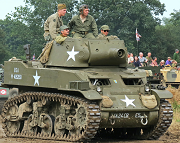


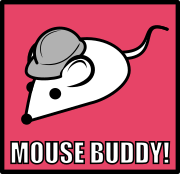















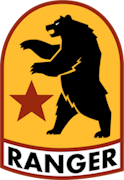


 Yes, it's like a lava lamp.
Yes, it's like a lava lamp.







